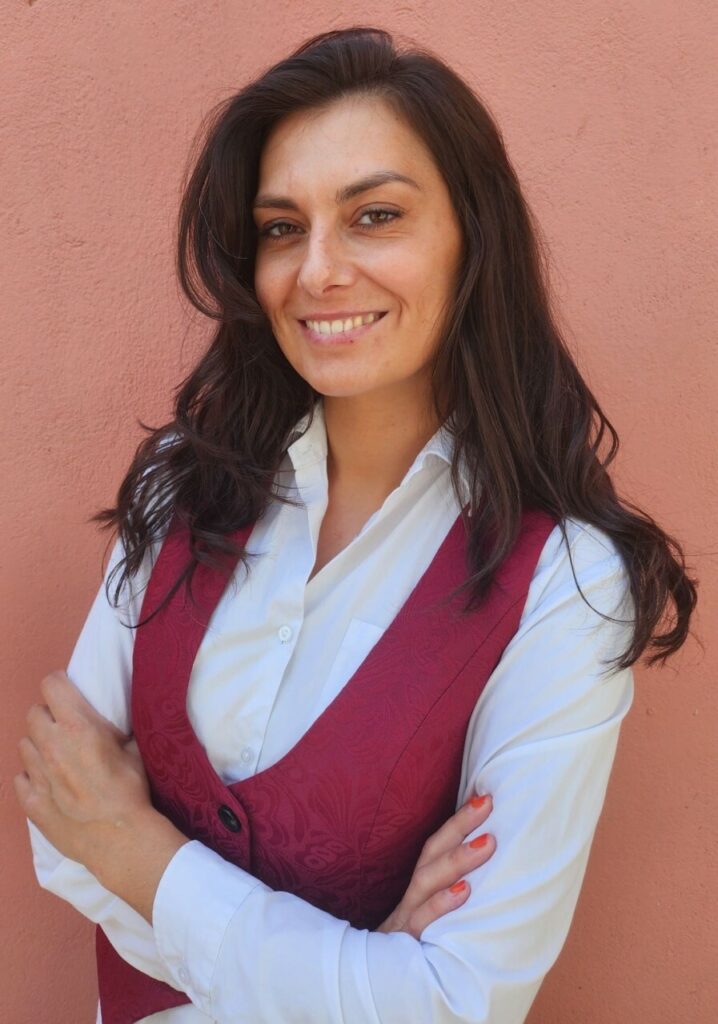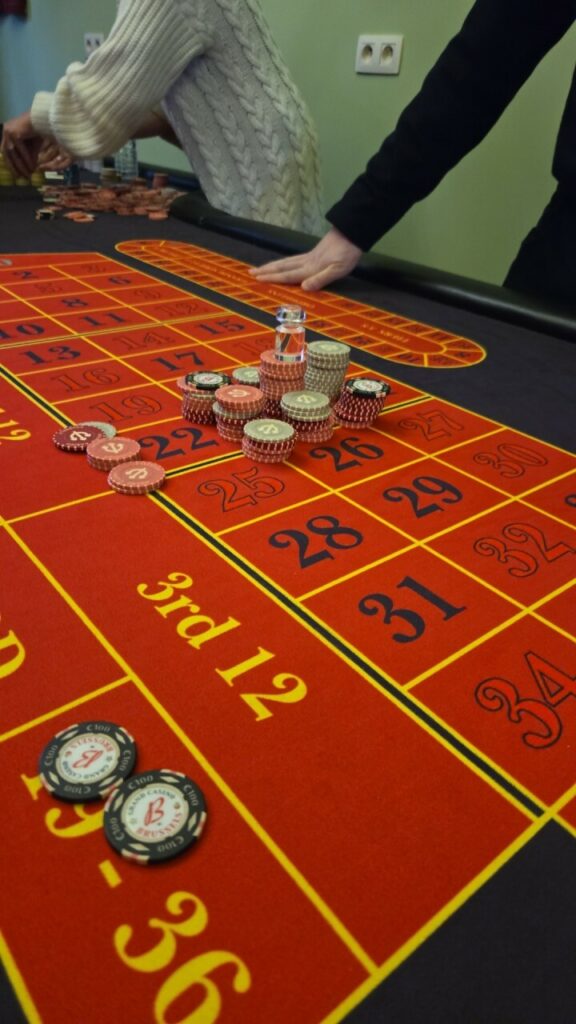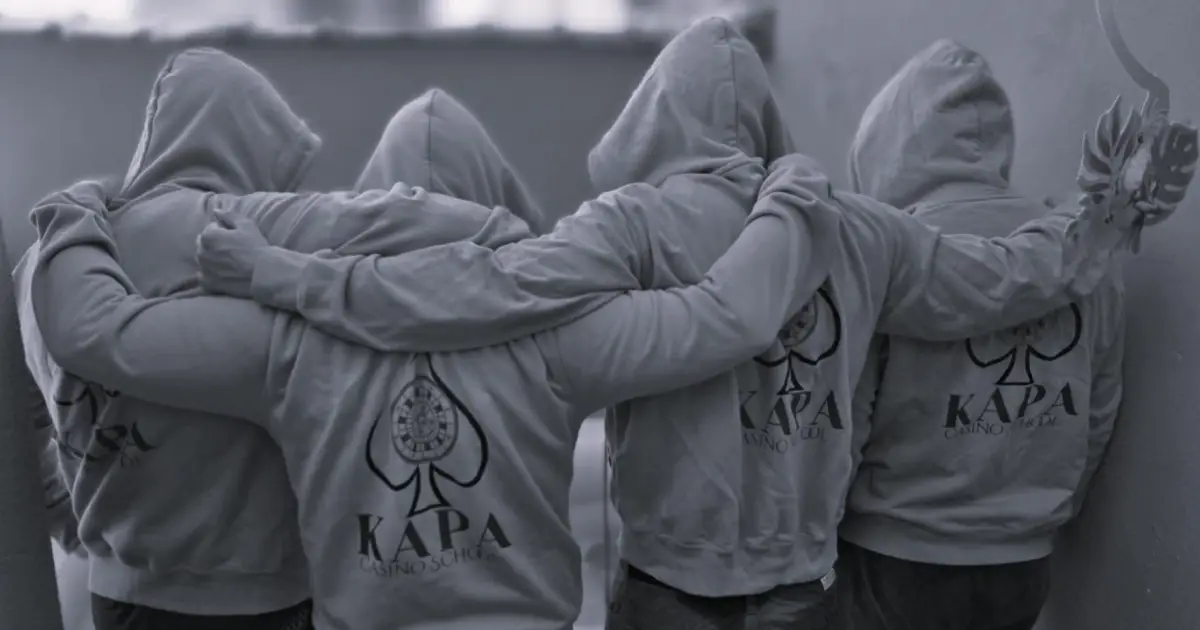Interview with Katarina Pantic, Kapa Casino School
After more than a decade behind the tables at the Brussels Casino, Katarina Pantic wanted to pass on her know-how and decided to create a unique school where rigour, practice and a passion for gambling come together to train people in the profession of croupier. One year after its launch, Kapa Casino School is already establishing itself as a benchmark for all those wishing to join the fascinating world of casinos. Gambling Club put a few questions to its founder.
The creation of Kapa Casino School
Can you tell us about your personal and professional background before founding Kapa Casino School?

I always knew I wanted to be a croupier, but I finally decided to study art history after secondary school. I didn’t enjoy the experience of studying at university at all, so I decided not to do a Master’s degree and instead looked for job vacancies at the Viage casino. I was very lucky because they were organising a training session for croupiers. I was hired and worked as a croupier for 11 years at the Brussels Casino.
What gave you the idea of setting up a training school for croupiers?
Because that didn’t exist in Belgium. Of course, there is sometimes the possibility of training in casinos, as I myself have done, but this is very occasional. With the school, I wanted to offer a constant supply to Belgians who wanted to do this job. What’s more, I really wanted to make the profession more popular and erase all the negative clichés that surround us.
You recently celebrated the first anniversary of Kapa Casino School. What have been your biggest obstacles and your greatest successes over the past year?
Without hesitation, I’d say being taken seriously and giving my school legitimacy. When I launched the school, I had to convince people that the profession of croupier is a real skill and that it deserves structured, high-quality training. I also had to win the confidence of the casinos and future students, prove that my approach was professional and that the training would lead to real job opportunities.
Croupier training at Kapa Casino School
Your training lasts 8 weeks. How are these 8 weeks structured?
I follow a programme I’ve devised. From week to week, they learn the trade in stages, with new information every day for 6 weeks. The last 2 weeks are just training. After that, they do a 4-week work placement at the Casino de Bruxelles, where they are fully involved in the job of croupier, doing the same thing as at school but in a real-life situation. So that’s a total of 12 weeks.
How much of the training is theoretical and how much practical?
For the theory, I’ve written a “syllabus” in which all the games and details that are useful for practising the profession are explained, but everything is mainly practical. From the first day of the course, the students spend their days handling tokens and cards, and I give my explanations orally as they go along. I provide them with chips, a roulette mat and cards so that they can take the practice home with them.
Do you have simulators or equipment used in real casinos?

Yes, I have two real roulette tables, a blackjack table and a poker table. The Viage casino also provided me with complete sets of chips and cards that are no longer in circulation, but which certainly delighted a lot of players at the time. So I’m fully equipped like a real casino; without that, it would be impossible for me to give quality lessons.
Do the students also learn human skills such as stress management and customer relations?
I try to make them understand that customers can have certain reactions so that they can manage them better. I try to prepare them for stress, but that’s almost impossible at school, which is a “safe space”. That’s why they do a 4-week work placement at the casino, to practise situations that are impossible to simulate at the school.
What is the typical profile of your students?
In general, quite dynamic people, attracted by atypical environments and often fans of board games or poker.
Do you also train croupiers for online casinos (live dealers)?
No, but if there’s a demand, I wouldn’t be against it at all.
The profession of croupier
In your opinion, what are the essential qualities to be a good croupier?
Friendly, outgoing, able to multitask and work well under pressure. And be able to use both hands.
What is the biggest myth or cliché about this profession?
That the croupier knows the next winning roulette number.
Are there any career prospects in this sector?
Yes, after becoming a croupier you become a table manager, then a pit boss and then a casino manager. In general, managers all started out as croupiers.
What advice would you give to someone hesitating to embark on this training?
I think the best advice I can give is to really do it out of desire, not out of spite, because you’re just looking for a job. It’s a profession that can sometimes be difficult, and if you don’t find meaning or pleasure in it, it’s going to be complicated to stay in it. Contrary to popular belief, the atmosphere in a casino is not austere and the human contact is very rewarding because we meet different and interesting people, whether customers or colleagues, every day; people we would never have met anywhere else.
The future of Kapa Casino School
Are you thinking of creating additional specialisations or training courses?
I’m already training in games other than the 3 main ones (Roulette, Blackjack and Poker), i.e. Ultimate Texas Hold’em, Punto Banco and other Poker variants. It’s also possible to train just in Poker. But otherwise, I don’t think I’ll be taking any courses that don’t involve learning to be a croupier.
Do you plan to open other training centres or expand internationally?
I sometimes dare to dream about it, yes.
What is your greatest dream for Kapa Casino School?
That my school becomes a benchmark. That Kapa rhymes with good croupier.
Is there anything else you’d like to add for our readers?
I’d just like to say that being a croupier is a real career, open to anyone who loves human contact, precision and gambling. It’s an exciting job, full of opportunities, with the chance to travel and develop rapidly.


